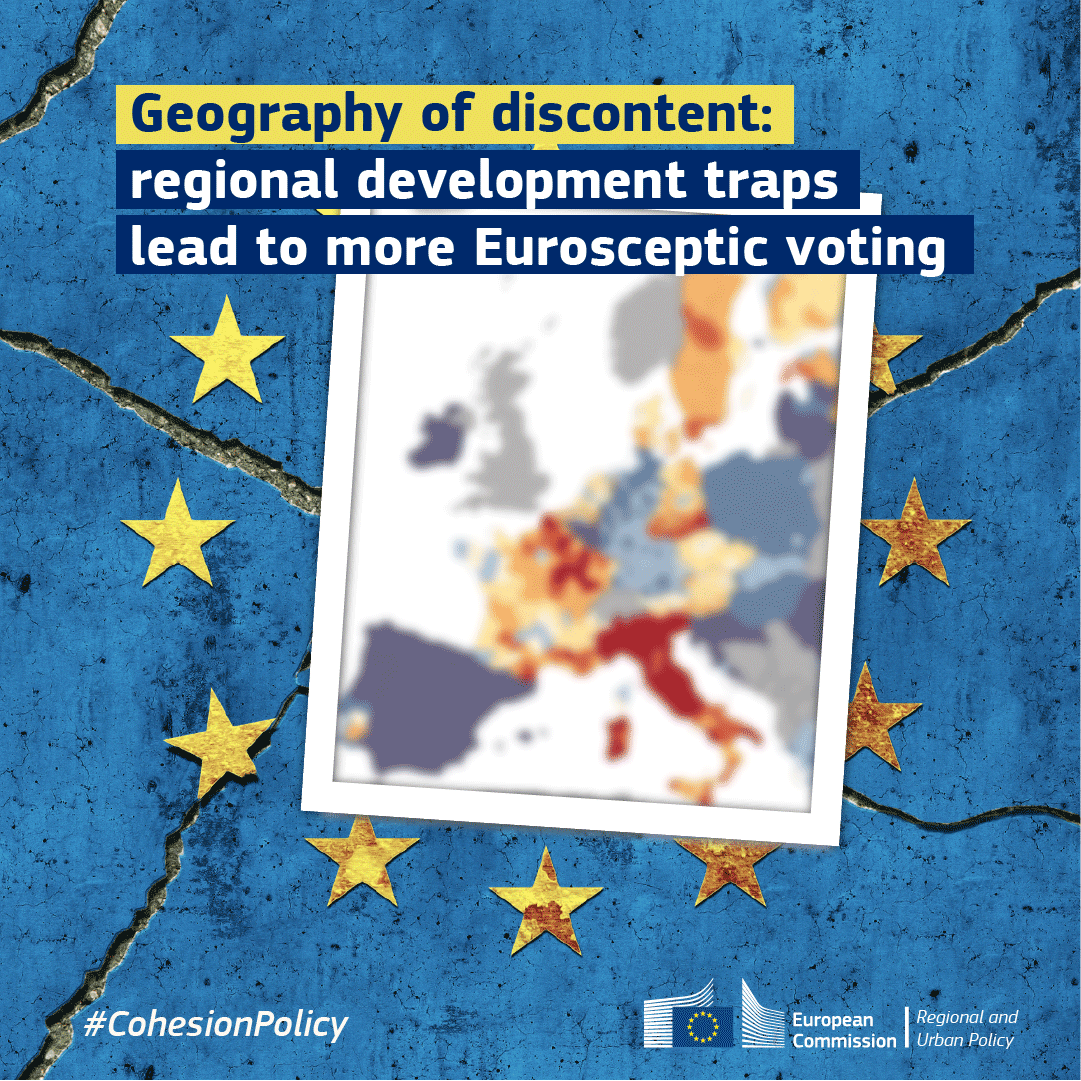The longer a region is caught in a regional development trap, the greater the impact on Eurosceptic voting is the result of a research paper published today by the European Commission’s Department for regional and Urban Policy (DG REGIO).
Geography of discontent: regional development traps lead to less support for European integration and values
- 12 June 2023

Eurosceptic voting is linked to the so-called “regional development trap”, a trap in which a region is unable to retain its economic dynamism in terms of income, productivity, and employment.
The research shows that the link between economic stagnation and Eurosceptic voting is not confined to one electoral cycle. Places which feel left behind are faced with disengagement and discontent in the long term. If the development trap is unaddressed, disengagement and discontent make citizens less likely to support European integration and values.
The paper calls for a cohesive development of our societies:
- need for place-based policies that can help regions to escape from long-term economic decline;
- a better understanding of the causes of the regional development traps and how they can be overcome;
- improving the quality of government, increasing innovation, and boosting education and training;
- developing smaller cities, towns, and rural areas;
- further research on the impact of public policies at territorial level.
Background
The research paper on the ‘Geography of Discontent’, which follows a first study published in 2018, has been made based on an analysis of national legislative elections between May 2018 and October 2022, examining the findings of Eurosceptic voting in relation to the ‘regional development trap’.
